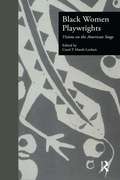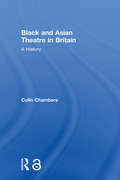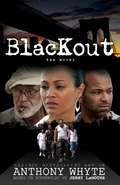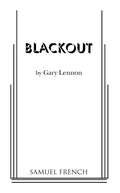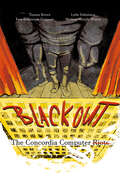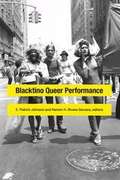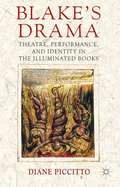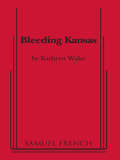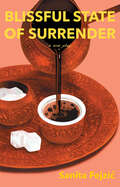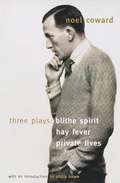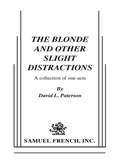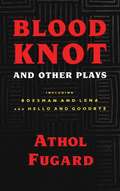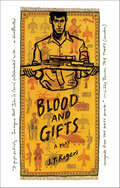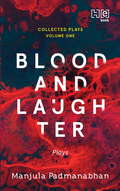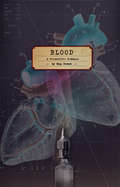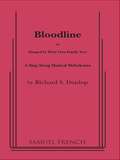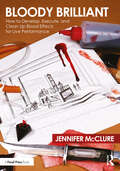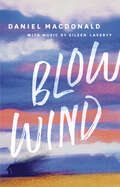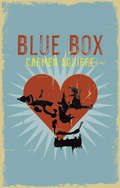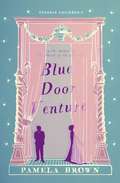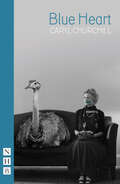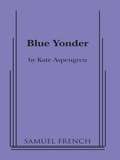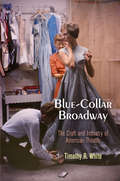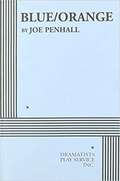- Table View
- List View
Black Women Playwrights: Visions on the American Stage (Studies in Modern Drama #Vol. 11)
by Carol P. Marsh-LockettFirst published in 1999. Routledge is an imprint of Taylor & Francis, an informa company.
Black and Asian Theatre In Britain: A History
by Colin ChambersBlack and Asian Theatre in Britain is an unprecedented study tracing the history of ‘the Other’ through the ages in British theatre. The diverse and often contradictory aspects of this history are expertly drawn together to provide a detailed background to the work of African, Asian, and Caribbean diasporic companies and practitioners. Colin Chambers examines early forms of blackface and other representations in the sixteenth century, through to the emergence of black and Asian actors, companies, and theatre groups in their own right. Thorough analysis uncovers how they led to a flourishing of black and Asian voices in theatre at the turn of the twenty-first century. Figures and companies studied include: Ira Aldridge Henry Francis Downing Paul Robeson Errol John Mustapha Matura Dark and Light Theatre The Keskidee Centre Indian Art and Dramatic Society Temba Edric and Pearl Connor Tara Arts Yvonne Brewster Tamasha Talawa. Black and Asian Theatre in Britain is an enlightening and immensely readable resource and represents a major new study of theatre history and British history as a whole.
Black with 'Equal'
by Vikram KapadiaA play which offers a sharp analysis of the seedy, selfish, and mean aspects of middle-class society in urban India.
Blackout
by Anthony Whyte Jerry LamotheIt's August, 2003. All of the Northeast is sweltering, but no place is hotter than Brooklyn, especially the gritty neighborhood known as East Flatbush. Then, in the midst of the heat wave, the unthinkable happens: the power goes out. And stays out. And the longer it's out, the edgier people get, until finally, edginess gives way to anger. For 48 hours, the community is in chaos. Looters are everywhere. No one is safe. Violence erupts suddenly, randomly, scarring the innocents as well as the agitators, until Flatbush finally explodes into deadly conflict. Based on actual events that occurred during the Northeast Blackout of August 14-15, 2003, this riveting novel tells the little-known story of a neighborhood thrown not only into darkness, but utter mayhem. Illustrated throughout with scenes from the film, Blackout is a heart-stopping, page-turning drama that keeps readers unable to put it down.
Blackout
by Gary LennonDrama / 4m, 5f / Blackout takes place on Christmas Eve at an Alcoholics Anonymous meeting. A diverse group has gathered to share their stories of hope and madness. They crave strength, integrity, and friendship as they struggle to make sense of their lives after years of drinking, drugging, and excess. A unique sense of family, love, and home prevails. Richard Lewis, Dianne Wiest, Faye Dunaway, Spalding Gray, and Howard Rollins, Jr. star in the movie version which is titled Drunks.
Blackout: The Concordia Computer Riots
by Tamara Brown Kym Dominique-Ferguson Lydie Dubuisson Mathieu Murphy-PerronIn February 1969, hundreds of students occupied a computer centre at what is now Montréal’s Concordia University to protest the mismanagement of a racism complaint lodged by Caribbean students against their biology professor. When an agreement to end the occupation fell through, riot police were called in, resulting in widespread damage, a mysterious fire, and nearly a hundred arrests. Created and devised by some of Montréal’s most prolific artists, Blackout re-examines the events that led to the occupation and protests, asking how race relations have changed in Québec and Canada.
Blacktino Queer Performance
by E. Patrick Johnson Ramón H. Rivera-ServeraStaging an important new conversation between performers and critics, Blacktino Queer Performance approaches the interrelations of blackness and Latinidad through a stimulating mix of theory and art. The collection contains nine performance scripts by established and emerging black and Latina/o queer playwrights and performance artists, each accompanied by an interview and critical essay conducted or written by leading scholars of black, Latina/o, and queer expressive practices. As the volume's framing device, "blacktino" grounds the specificities of black and brown social and political relations while allowing the contributors to maintain the goals of queer-of-color critique. Whether interrogating constructions of Latino masculinity, theorizing the black queer male experience, or examining black lesbian relationships, the contributors present blacktino queer performance as an artistic, critical, political, and collaborative practice. These scripts, interviews, and essays not only accentuate the value of blacktino as a reading device; they radiate the possibilities for thinking through the concepts of blacktino, queer, and performance across several disciplines. Blacktino Queer Performance reveals the inevitable flirtations, frictions, and seductions that mark the contours of any ethnoracial love affair. Contributors. Jossiana Arroyo-Martinez, Marlon M. Bailey, Pamela Booker, Sharon Bridgforth, Jennifer Devere Brody, Bernadette Marie Calafell, Javier Cardona, E. Patrick Johnson, Omi Osun Joni L. Jones, John Keene, Lawrence La Fountain-Stokes, D. Soyini Madison, Jeffrey McCune, Andreea Micu, Charles I. Nero, Tavia Nyong'o, Paul Outlaw, Coya Paz, Sandra L. Richards, Charles Rice-González, Matt Richardson, Ramón H. Rivera-Servera, Celiany Rivera-Velázquez, Tamara Roberts, Lisa B. Thompson, Beliza Torres Narváez, Patricia Ybarra, Vershawn Ashanti Young
Blake’s Drama
by Diane PiccittoBlake's Drama challenges conventional views of William Blake's multimedia work by reinterpreting it as theatrical performance. Viewed in its dramatic contexts, this art form is shown to provoke an active spectatorship and to depict identity as paradoxically essential and constructed, revealing Blake's investments in drama, action, and the body.
Bleeding Kansas
by Kathryn WalatHistorical DramaCharacters: 3 male, 2 femaleIt's 1855, Kansas Territory. The country is divided. People are turning against their neighbors because of their beliefs. War is on the horizon. Good people will do bad things and love will grow in places it shouldn't. A provocative, funny and insightful play revisits a crucial moment in American history. Homesteading farmers George and Kitty fight the elements to start a new life as a politically divided country takes a dangerous step towards civil war."To Walat's credit, her fast-moving play does not preach, merely raises questions, among them: Who are we as a nation? What shaped us and why? And does what we were-violent, intractable and destructive-play into our present-day society?...Bleeding Kansas is an excellent work" -San Diego News
Blissful State of Surrender
by Sanita FejzićIn their suburban Canadian home, Sue and Emir's marriage is a battlefield of bitterness and constant bickering. Their past as Muslims living in Sarajevo haunts them, with flourishing careers lost to war and genocide. But, proud of their life in Canada, they choose to leave these painful memories behind them. When a birthday celebration brings their three daughters home again after eight years, bombshell after revealing bombshell is dropped, and an epic clash of wills erupts, awakening the family's darkest secrets.Blissful State of Surrender is a poignant dramatic comedy that delves into the lives of a Bosnian Canadian family grappling with trauma, social-class limbo, and intergenerational differences, challenging Canada's self-image as a haven for refugees and revealing how internalized oppression breeds lateral violence. For immigrants fleeing the horrors of genocide, even the act of remembering can be dangerous, yet the cycle of violence can only be broken when the truth is finally set free.
Blithe Spirit, Hay Fever, Private Lives: Three Plays
by Noël CowardA collection of Cowards' most memorable work. These plays, Blithe Spirit, Private lives and Hay Fever, bring out stories of a novelist, a divorced couple and of a person who visits an eccentric family respectively.
Blonde and Other Distractions
by David PatersonA great collection of shorts by Paterson, these award winning one-acts are perfect for scene studies, two person auditions, secen nights and showcases, providing a wide variety of characters bith humorous and thought provoking. A kid-napping gone awry, two distant brothers try to reconnect, a pair of lovers face a daunting family holiday, a smarmy stockholder tries to charm his way into heaven, a friend is forced to bury a friend, and siblings seeking an amicable divorce completes this theatrical compilation.
Blood Knot and Other Plays
by Athol FugardThese three Port Elizabeth plays, which established South African playwright Athol Fugard's international reputation more than twenty years ago, examine with passion and grace close family relationships strained almost unendurably by the harshest of economic and political conditions. "A rare playwright, who could be a primary candidate for either the Nobel Prize in Literature or the Nobel Peace Prize."--Mel Gussow, The New Yorker
Blood and Gifts: A Play
by J. T. RogersMy God, Russian soldiers being shot with Chinese bullets. Sometimes the world is so beautiful.It's 1981. As the Soviet army burns its way through Afghanistan, CIA operative Jim Warnock is sent to try to halt its bloody progress, beginning a secret spy war behind the official hostilities. Jim and his counterparts in the KGB and the British and Pakistani secret services wrestle with ever-shifting personal and political loyalties. With the outcome of the entire Cold War at stake, Jim and a larger-than-life Afghan warlord decide to place their trust in each other.Spanning a decade and playing out in Washington, D.C., Pakistan, and Afghanistan, Blood and Gifts is a sweeping, often shockingly funny epic set against one of the greatest historical events of recent history, the repercussions of which continue to shape our world.
Blood and Laughter: Plays
by Manjula PadmanabhanA neighbourhood that turns a blind eye to a recurring gruesome crime. A game show that puts the lives of its contestants on the line. An insidious tableau that pits three artists against each other. A world where organs of the poor are commercially harvested for the rich. Collected Plays brings together, in a much-anticipated series, the dramatic works of Onassis Prize-winning playwright and author Manjula Padmanabhan.Blood and Laughter, the first volume, presents within its covers Padmanabhan’s full-length plays – including the three-times cinematized Lights Out, the previously unpublished Mating Game Show and Artist’s Model, and the award-winning Harvest – all known for their masterful portrayal of the dilemmas of morality, relationships and the idea of justice. Horror, anticipation and chilling realism mark each of these works, drawing readers and audiences alike to the edge of their seats.With new introductions to the works that affirm the relevance of the themes of the plays, this collection showcases the playwright’s mastery of her art and reconfirms her standing among the leading dramatists of our time.
Blood: A Scientific Romance
by Meg BraemTwin sisters Poubelle and Angelique are bonded in both biology and shared tragedy after a car accident leaves them orphaned along a prairie highway in a pool of blood. But the young twins are brought home with Dr. Glass after their remarkable recovery, and quickly find themselves the subject of endless experiments. In a quest to study Poubelle and Angelique's undeniable bond, Dr. Glass's questionable practices are soon scrutinized by a young doctor who might be the twins' only hope for a normal life. Blood: A Scientific Romance probes the questions: Do relationships take on new meaning when they begin to shape not only our experiences, but our biology? And do we, in fact, complete one another?
Bloodline or Hanged In
by Richard S. DunlopSing along musical mellerdrammer with 17 or more old time musical favorites / 2 m., 2 f., claque, 1 or 2 pianos. / Simple exteriors / An entertainment gem suitable for all groups. Includes production notes, ideas and interpretive hints. It is thoroughly modern but with a traditional plot: orphaned, innocent damsel prefers honest young fellow but is pursued by wealthy physician. Everything's settled by a surprisingly liberated "Granny." It's a satirical delight with a preposterous story requiring outrageous overacting and performer villainy of course. The few props and easy costumes make it a very economical show to do that can be enjoyed on different levels. Running time 70 min. to 2 hours, depending on extensiveness of olio and integrated side business.
Bloody Brilliant: How To Develop Execute And Clean Up Blood Effects For Live Performance
by Jennifer McClureBloody Brilliant: How to Develop, Execute, and Clean Up Blood Effects for Live Performance offers methods and techniques for delivering this special effect on the stage. The world of live theatre presents its own set of unique challenges when creating special effects, particularly blood. There are no cropped-view frames, multiple angles, or reshoots – everything is live and in view of the audience. This book provides helpful insight, information, techniques, and tricks for producing reliable and repeatable blood effects, covering everything from design and budgeting to safety and clean-up. Filled with easy-to-follow descriptions and full-color artwork, this text includes: Practical examples of blood effect budgets, outlining not just money but also labor needs. A breakdown of the components for making an original blood recipe, as well as reliable, industry-tested recipes. Options for dispensing blood to create realistic effects for any budget size. A comprehensive wash-testing database of over 500 examples of fabrics and blood combinations. Prop managers and builders in professional, educational, and regional theatre are sure to benefit from the tips outlined in this book.
Blow Wind
by Daniel MacdonaldAfter years of running from her dysfunctional past, Sarah returns home to the family farm in Saskatchewan to find her mom Kathleen yelling into the wind, setting off a turbulent new chapter in her life. Instead of finding comfort in “home,” Sarah learns nothing is how she remembers it, and with Kathleen’s growing dementia, nothing will ever be the same again. Two of Sarah’s older siblings, Jolene and Steven, are more focused on the future ownership of the farm and are planning a supper that could help influence that decision. But Sarah turns her attention to Kathleen, who keeps chasing things that aren’t there: a fox, a hill, the answers to questions only Sarah’s adopted brother Tom holds the key to. When an unexpected outcome shocks the family at the supper, much more than the farm is at stake. Blow Wind is a beautiful portrait—with musical accompaniment—of a family that together must build new paths forward while learning how to love, let go, and forgive.
Blue Box
by Carmen AguirreInterweaving recollections of her revolutionary life in Chile under Augusto Pinochet's regime with her fleeting attempts to realize a "vision" of love in Los Angeles, Carmen Aguirre's one-woman show Blue Box is a fiery proclamation of carnal yearning and social conviction. As ever, Aguirre is assertive, sexy, and wryly political, sharing the sacrifices of her life with humor and courage.Carmen Aguirre is a Vancouver-based theater artist and screen actor who has worked extensively throughout North and South America. She organizes Theatre of the Oppressed workshops and teaches in the acting department at the Vancouver Film School. Her 2011 autobiography, Something Fierce: Memoirs of a Revolutionary Daughter, is an award-winning bestseller.
Blue Door Venture: Blue Door 4 (Blue Door #4)
by Pamela BrownThe fourth book in the Blue Door series, which starts with The Swish of the Curtain, the classic story which inspired actors from Maggie Smith to Eileen Atkins.The seven young members of the Blue Door Theatre Company are, at long last, professional actors. And they are now proudly in charge of the first commercial theatre in their hometown of Fenchester. But the day-to-day pressures of financing the theatre and choosing box-office attractions are soon eclipsed by an event that threatens to close the theatre almost as soon as it has opened.Following the characters from the classic of children's literature The Swish of the Curtain on an adventure which takes them far from the stage of the Blue Door Theatre, Blue Door Venture is the fourth book in the Blue Door series.
Blue Heart (NHB Modern Plays)
by Caryl ChurchillTwo exhilarating and teasingly entertaining one-act plays from one of the UK's leading playwrights. <P><P> Heart's Desire sees a family awaiting their daughter's return from Australia, though in a series of alternative scenarios, the play collapses as it keeps veering off in unexpected and ridiculous directions. <P><P> Blue Kettle tells the story of conman Derek and the five women he misleads into believing he is their biological son. Try as he might, Derek's plans are scuppered as the play is invaded by a virus. <P><P> In Caryl Churchill's ever-inventive style, the two plays in Blue Heart pull apart language and structure in a way that is theatrically remarkable and fast paced, in a stirring yet truthful exploration of family and relationships.
Blue Yonder
by Kate AspengrenCharacters: 12 female (can be performed by 4f, or any number in between) Monologues & ScenesDramatic Comedy A familiar adage states, "Men may work from sun to sun, but women's work is never done." In BIue Yonder, the audience meets twelve mesmerizing and eccentric women including a flight instructor, a firefighter, a stuntwoman, a woman who donates body parts, an employment counselor, a professional softball player, a surgical nurse professional baseball player, and a daredevil who plays with dynamite among others. Through the monologues, each woman examines her life's work and explores the career that she has found. Or that has found her.
Blue-Collar Broadway
by Timothy R. WhiteBehind the scenes of New York City's Great White Way, virtuosos of stagecraft have built the scenery, costumes, lights, and other components of theatrical productions for more than a hundred years. But like a good magician who refuses to reveal secrets, they have left few clues about their work. Blue-Collar Broadway recovers the history of those people and the neighborhood in which their undersung labor occurred.Timothy R. White begins his history of the theater industry with the dispersed pre-Broadway era, when components such as costumes, lights, and scenery were built and stored nationwide. Subsequently, the majority of backstage operations and storage were consolidated in New York City during what is now known as the golden age of musical theater. Toward the latter half of the twentieth century, decentralization and deindustrialization brought the emergence of nationally distributed regional theaters and performing arts centers. The resulting collapse of New York's theater craft economy rocked the theater district, leaving abandoned buildings and criminal activity in place of studios and workshops. But new technologies ushered in a new age of tourism and business for the area. The Broadway we know today is a global destination and a glittering showroom for vetted products.Featuring case studies of iconic productions such as Oklahoma! (1943) and Evita (1979), and an exploration of the craftwork of radio, television, and film production around Times Square, Blue-Collar Broadway tells a rich story of the history of craft and industry in American theater nationwide. In addition, White examines the role of theater in urban deindustrialization and in the revival of downtowns throughout the Sunbelt.
Blue/Orange
by Joe PenhallWinner of the 2001 Olivier Award for Best New Play, Blue/Orange sets the stage for a clash of wills between two psychiatrists: one is a new, inexperienced doctor just starting out, the other is his well-established mentor. The diagnosis and treatment of a young black man named Chris, who claims to be the son of African dictator Idi Amin, sparks a conflict between the two doctors. As Chris becomes a pawn in their battle, listeners are left wondering who, if anyone, is sane in this dark, edgy comedy.
